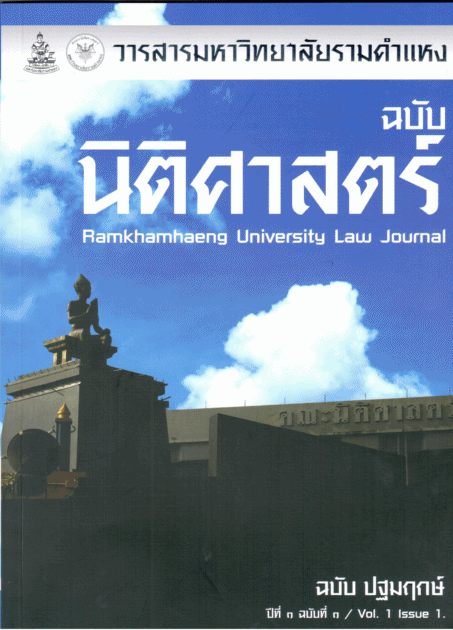วิวัฒนาการและข้อพิจารณาบางประการเกี่ยวกับกฎหมายความรับผิดต่อความเสียหายที่เกิดขึ้นจากสินค้าที่ไม่ปลอดภัย
Main Article Content
Abstract
Abstract in Thai unavailable
Manufacturing at present uses sophisticated technology to create mass production. As a result, consumers are unable to inspect product quality thoroughly to discover whether these products are defective or not. Defective products, when used by consumers, may cause harm to the life, body, health, emotion or property of the consumers or other persons. It is very complicated, however, to bring an action for compensation, since all of the facts regarding such products are in the possession of manufacturers and distributors. For this reason, Product Liability Law is promulgated to tackle this specific issue.
The establishment of the European Union led to the creation of laws certifying the fundamental rights of consumers, especially rights to support health and safety. In particular, Product Liability Law, EC Directive 85/374, was promulgated in 1985. According to this law, a rule was established specifying that manufacturers must be held responsible for all damages that result from defective products, regardless of the consumersû intentional actions. This concept derives from the çStrict Liabilityé principle. EC Directive 85/374 also provides definitions for key words such as çproducté, çmanufactureé, çinjured personé, çdamageé, çdefective producté, çentrepreneuré, and so on.

